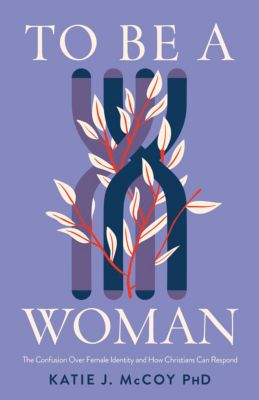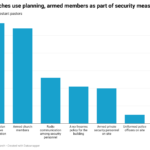
As diagnoses of gender dysphoria rise, the resulting confusion over female identity has the potential to reshape what it means to be a woman.
By Amy Whitfield
Gender confusion is not just growing, it’s erupting, and by a landslide, it’s girls who seem to be most affected by the explosion.”
– Katie McCoy, To Be a Woman
That statement, from the introduction of Katie McCoy’s book To Be a Woman, sets the stage for the conversation our culture is afraid to have but can’t afford to avoid. As diagnoses of gender dysphoria rise dramatically and we see an increase in societal pressure to affirm the gender preferences of even children, the resulting confusion over female identity has the potential to reshape what it means to be a woman.
Perhaps the strongest indicator of this came in 2022, when a judicial nominee was asked to define the word “woman” and opted to abstain from answering the question. The resulting public firestorm went in two directions, with many affirming the non-response and others appalled by it.
Unfortunately, when battle lines are drawn, humans can become overshadowed by politics. In this case, the actual issue—and the very real girls at the center of it—often gets lost in the war over the dictionary.
“Gender confusion is not just growing, it’s erupting, and by a landslide, it’s girls who seem to be most affected by the explosion.” — @blondeorthodoxy Click To TweetEngaging with culture
McCoy steps up without hesitation to answer the question. And the fact she can fill an entire book doing so indicates how far the conversation has gone and how much clarity is needed. But the defining mark of this work is the sincere compassion with which she delivers clarity.
Defining womanhood in the 21st century requires not only a foundational understanding of the created order but also an ability to converse with the ideas of the day. Like Paul addressed the people at Mars Hill with a working knowledge of their philosophies before presenting the truth of the gospel (Acts 17:22-34), we do well to understand the prevailing views of our day as we defend God’s intent for His creation.
RESEARCH: U.S. Protestant Pastors See Gender Change as Immoral
It’s important to understand the impact social influence can have on cultural formation, the philosophical ideas that shape Western culture and how those ideas affect women, and the relational component of gender confusion.
But we cannot stop there. Those concepts can serve the broader context and help us know the prevailing beliefs of the culture, but they aren’t truth claims that have the final say. First, we must be willing to boldly name the physiological and neurobiological differences between men and women. But ultimately, we must proclaim the most important reality of all—the theological meaning of gendered identity, that male and female are independent expressions of our Creator and interdependent on each other.
“Defining womanhood in the 21st century requires not only a foundational understanding of the created order but also an ability to converse with the ideas of the day.” — @acwhit Click To TweetMcCoy states in the book, “Trans ideologies disconnect the outer body from the inner self. The body and the self are not just distinct but divisible aspects of human identity. But they also separate the body from its purpose. By severing the physical self from the gendered self, they deprive the body of the theological meaning God bestowed on it.”
Missional tone
Perhaps the most important aspect of To Be a Woman is its gospel-centered perspective and missional tone. Engaging the issue of gender ideology isn’t about achieving political power or worldly gain. Rather, it’s our calling to reflect the character of God and seek the common good.
It’s also our responsibility to care for those the world has harmed. Standing for truth doesn’t have to conflict with caring for those who are hurting. McCoy calls for Christlike compassion and carefully demonstrates that we can minister to those experiencing pain and confusion without abandoning the biblical vision for men and women created in the image of God.
“Engaging the issue of gender ideology isn’t about achieving political power or worldly gain. Rather, it’s our calling to reflect the character of God and seek the common good.” — @acwhit Click To TweetMcCoy is an experienced theologian with a heart for the local church. Her expertise in the doctrine of humanity mixed with her calling to serve women uniquely positions her to write this book. Her caring voice shines through as she explains ideologies of today’s world in a way anyone can grasp and repeatedly applies the truth of the gospel.
Equipping parents and ministry leaders
The book is eye-opening—sometimes discouragingly so. But it displays the importance of preparing to face situations no one imagined even a decade ago. McCoy saw the rapid cultural shifts and knew they would have significant implications for women and girls. In particular, parents of adolescent girls and those who work with students will benefit from this resource.
In a rapidly changing context, we cannot keep our heads in the sand and pretend as if everything is the same. But we also cannot let those sands shift underneath our feet and simply go along with their direction. We must understand the times we live in to know exactly what God has called us to speak against and to live with grace for those affected by the ideologies of the age. To Be a Woman tells us what we need to know and encourages us to stand for truth and care for a hurting world at the same time.
For permission to republish this article, contact Marissa Postell Sullivan.













